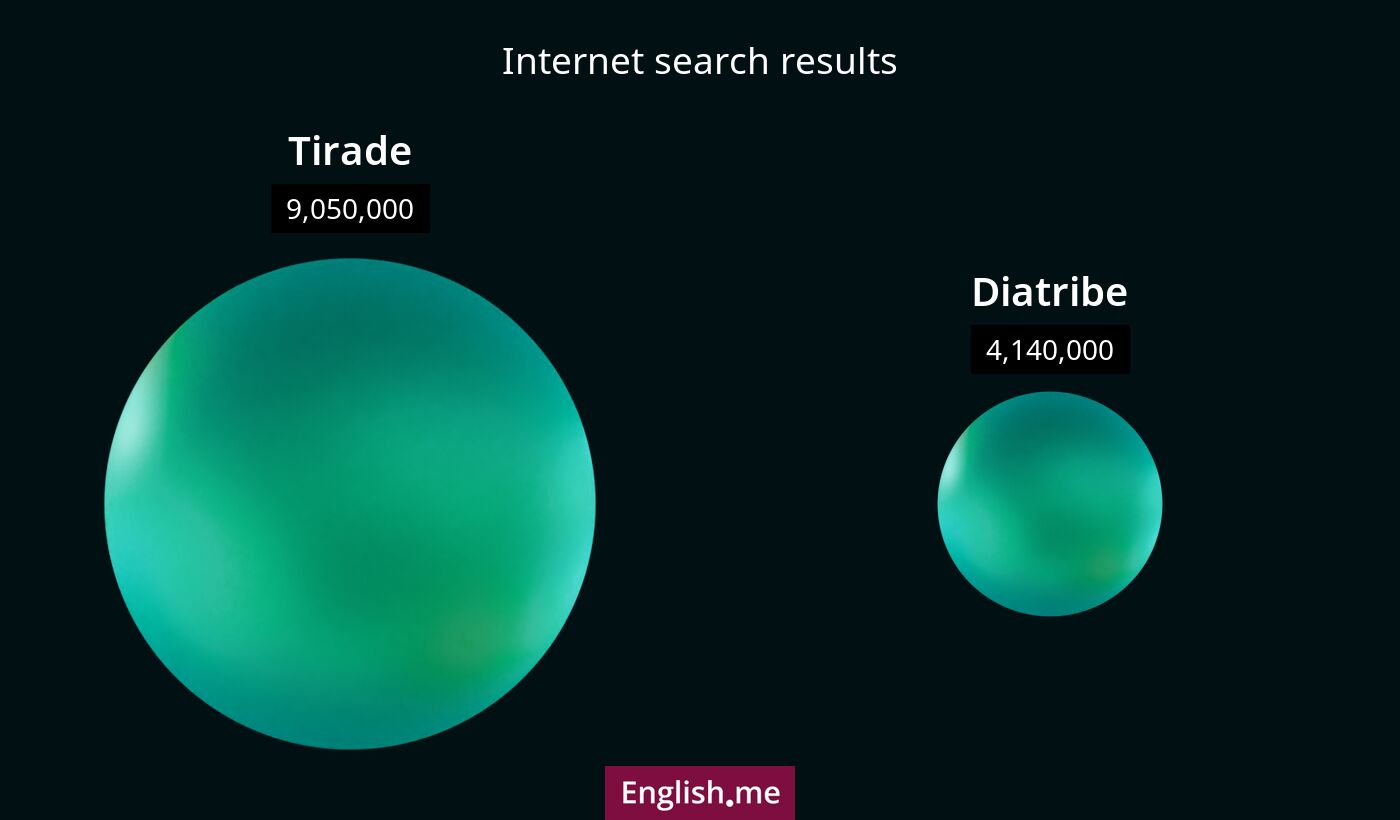"Tirade" vs. "diatribe": words of fury
Reviewed and edited by  Lloyd Cooper 23/01/2025, 18:36
Lloyd Cooper 23/01/2025, 18:36
English.me team member

 What is similar?
What is similar?
Both "tirade" and "diatribe" refer to long, angry speeches or written pieces that involve strong criticism or verbal attacks against someone or something.
 What is different?
What is different?
A "tirade" is typically an emotional, prolonged outburst of anger or frustration, often delivered spontaneously and directed at those present. A "diatribe" is a bitter, forceful, and sharply abusive denunciation, which can be spoken or written, and is often more structured and targeted against a particular person, group, or idea.
 Which one is more common?
Which one is more common?

 Examples of usage
Examples of usage
Tirade- Frustrated by the delays, she launched into a tirade against the organizers.
- The customer's tirade at the manager gathered the attention of everyone in the store.
- He couldn't contain his rage and went on a tirade about the unfair policies.
- The columnist's diatribe against the new law sparked widespread debate.
- In his speech, he delivered a diatribe aimed at his political rivals.
- Her book is a diatribe on the failures of modern education systems.

 English
English español
español française
française italiano
italiano deutsche
deutsche 日本語
日本語 polski
polski česky
česky svenska
svenska Türkçe
Türkçe Nederlands
Nederlands